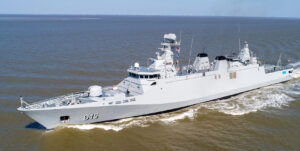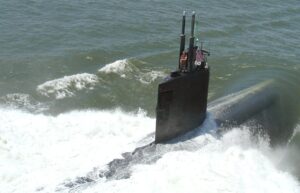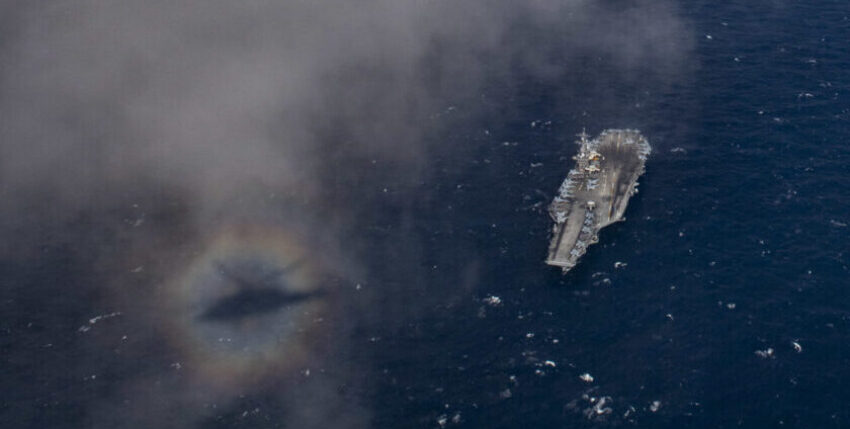It almost looks as if the USA had "forgotten" its NATO partner Spain during the last entry of the HARRY S. TRUMAN carrier group into the Mediterranean. The Spanish Armada routinely provides an escort frigate not only for such carrier groups, but also for other warships sailing around the south of Spain. The aim is to maintain a presence at sea and not leave the convoy without a regional escort. After all, threading an aircraft carrier and its protective strike group into the maritime traffic of the Strait of Gibraltar and further into the Mediterranean is understandably not a normal transit for the US Navy - the "hose" gives many an Atlantic and Pacific sailor grey hair!
This time it's Morocco's turn!
For the passage of the strait in mid-December, America had asked the Kingdom of Morocco on the southern opposite coast to provide the "escort" for the NIMITZ-class aircraft carrier. This honourable task fell to the Sigma frigate ALLAL BEN ABDALLAH (F 615), which, according to the words of thanks from the commander of the carrier group, Rear Admiral Curt Renshaw, had proved its worth.

Military diplomacy
But this is how military diplomacy works in peacetime - courting and supporting one side without losing sight of or harming the other. The region around the western Mediterranean is not without its own tensions: Spain with Morocco over the refugee issue and the Spanish enclaves on and in the Moroccan coastline, then Morocco with Algeria and the unrest in its immediate neighbour, and a little further on all the uncertainties with the remaining state of Libya. The passage of a major organisation in this region is an ideal opportunity to show targeted attention and appreciation in order to have a positive impact. Of course, an influential and authoritative nation like the USA must not let such an opportunity go to waste.
Morocco's perspective
Morocco has launched a five-year plan to renew and upgrade its defence capabilities with a volume of 18 billion euros in order to at least compensate for the gap in armaments technology compared to Algeria. But the kingdom is also on the way to making its mark and asserting itself politically in the region. This does not only apply to the Mediterranean coast, but especially to the Western Sahara, where Morocco is claiming sovereignty and is increasingly gaining international recognition for this claim. It would be helpful if the United States of America did not always only extend its favours to its NATO partners, but also tried to strike a balance with the surrounding countries. Then perhaps things will work out better again with the neighbours to the north and south. But, as always, this is without guarantee! Because the interests of those involved are complex and conflicting.
And what about Gibraltar?
Whether what happened in Gibraltar itself at the end of the year falls into the same category is uncertain. In any case, the nuclear-powered USS ALBANY, an American LOS ANGELES-class fighter submarine, moored in the harbour of the British enclave on Spain's coastline for just under a week at the turn of the year. Naturally, such ship movements excite the southern Spanish public, which usually results in increased press activity. However, experience has shown that this is mainly the fault of regional conservationists and anti-nuclear activists. However, the press situation remained relatively quiet - probably because of the public holidays. Or perhaps because it was an American and not a British submarine?










